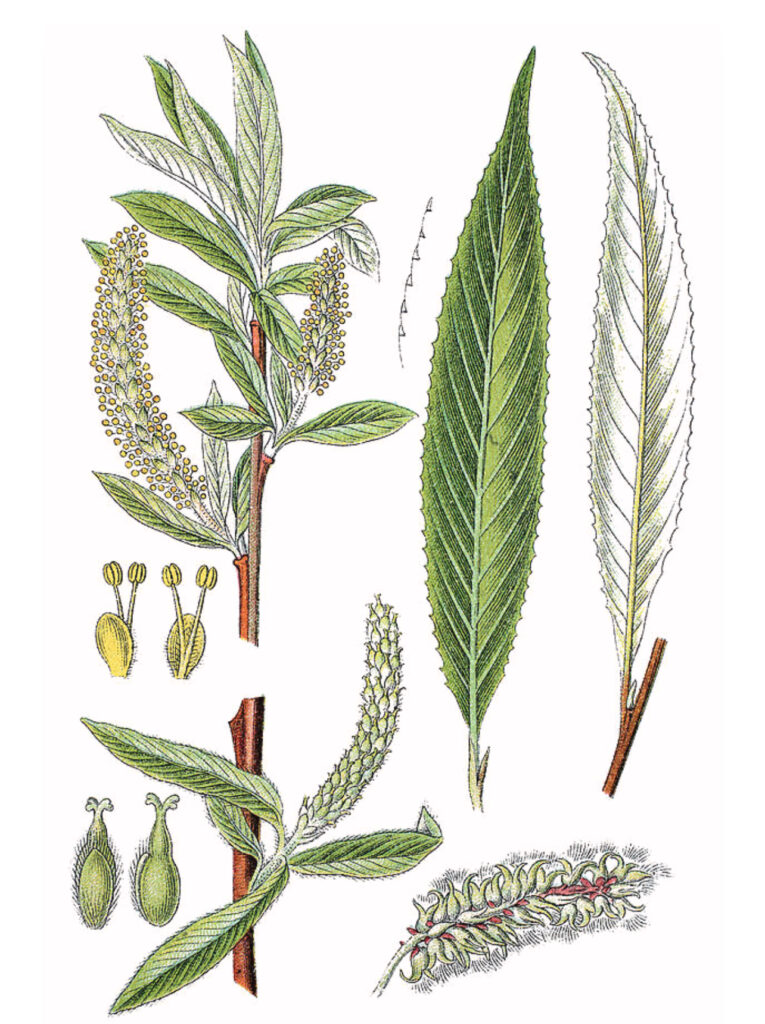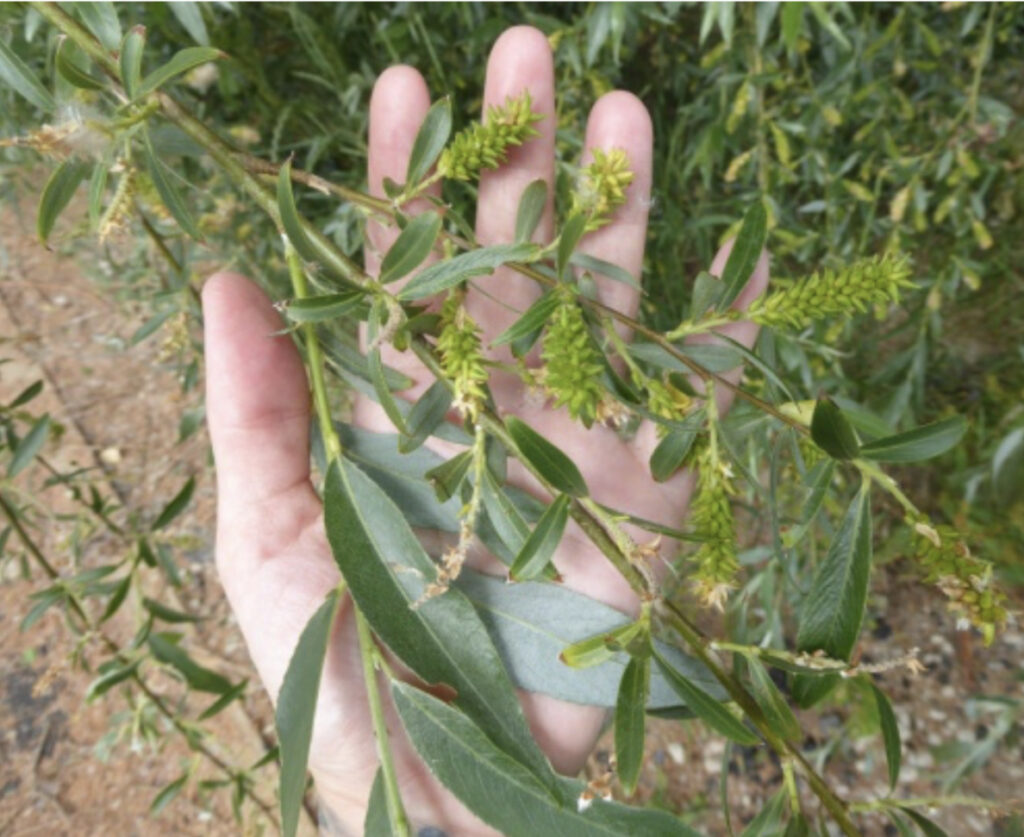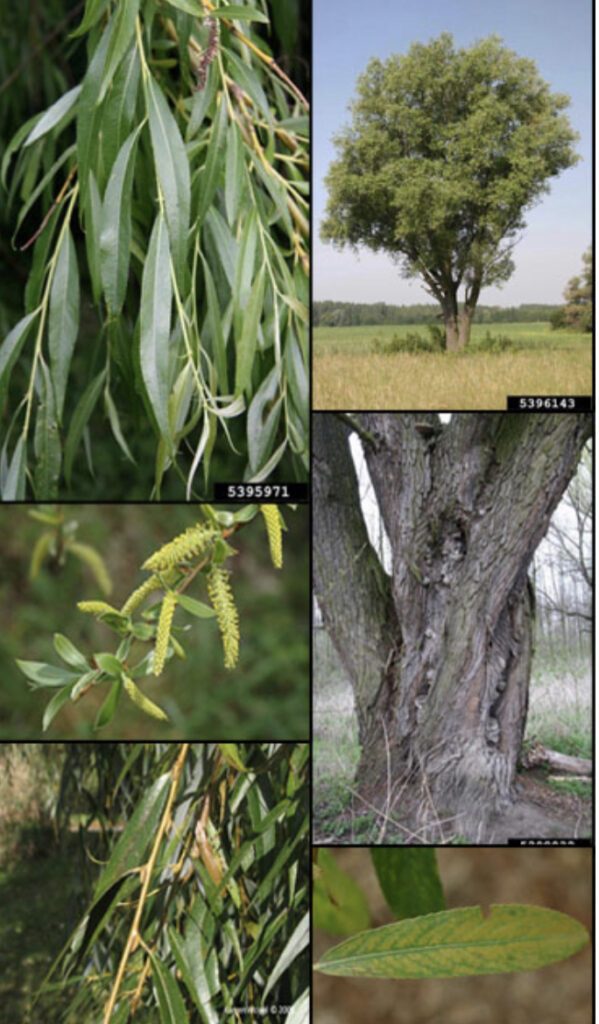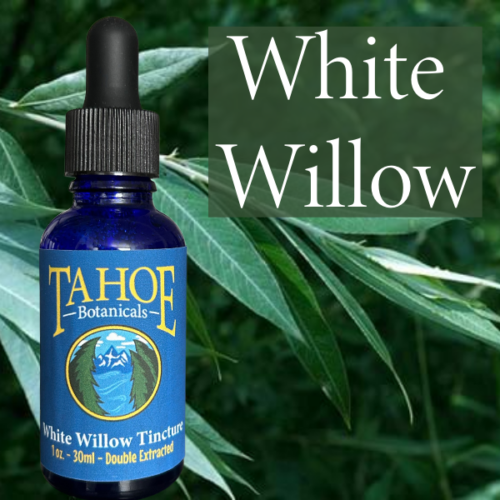White Willow Bark: Nature’s Soothing Remedy


The Creator has truly blessed us with a treasure trove of remedies, and one such gem is white willow bark. Derived from the bark of the white willow tree, this healing ally has been used for centuries to alleviate various ailments. In this post, we will explore a few health benefits that white willow bark addresses.

It should be noted that white willow bark is considered safe when used for up to 12 weeks. It might cause diarrhea, heartburn, and vomiting in some people. It can also cause itching, rash, and allergic reactions, particularly in people who are allergic to aspirin. So if you are allergic to aspirin, white willow bark isn’t recommended.
That said, here are some of the amazing benefits of white willow bark:
1. Natural Pain Relief:
White willow bark contains a compound called salicin, which is similar to the active ingredient found in aspirin. This compound has been shown to possess analgesic properties, making white willow bark an effective natural pain reliever. It can help alleviate headaches, muscle aches, joint pain, and menstrual cramps without the potential side effects associated with synthetic pain medications.
2. Anti-inflammatory Properties:
In addition to its pain-relieving effects, white willow bark also exhibits anti-inflammatory properties. The salicin in white willow bark helps reduce inflammation in the body, making it beneficial for conditions such as arthritis, tendonitis, and other inflammatory conditions. By reducing inflammation, white willow bark can help relieve pain and improve overall mobility.
3. Fever Reduction:
White willow bark has traditionally been used to reduce fever. Its natural compounds help lower body temperature and provide relief from feverish symptoms. This makes it a valuable natural alternative for individuals seeking fever reduction without resorting to over-the-counter medications.
4. Digestive Aid:
White willow bark has been used as a digestive aid for centuries. It can help soothe an upset stomach, relieve indigestion, and reduce gastrointestinal discomfort. The anti-inflammatory properties of white willow bark can also help alleviate symptoms of inflammatory bowel diseases, such as Crohn’s disease and ulcerative colitis.
5. Skin Health:
White willow bark has been incorporated into skincare products due to its potential benefits for the skin. Its natural exfoliating properties help remove dead skin cells, unclog pores, and promote a clearer complexion. Additionally, the anti-inflammatory properties of white willow bark can help reduce redness and irritation, making it suitable for individuals with sensitive or acne-prone skin.

White willow bark is a remarkable natural remedy that offers a range of benefits for various health concerns. From its pain-relieving and anti-inflammatory properties to its ability to reduce fever and aid digestion, white willow bark has been used for centuries as a soothing and effective remedy. However, it is important to consult with a healthcare professional before incorporating white willow bark into your healthcare routine, especially if you are pregnant, have any underlying medical conditions or are taking other medications.
Citations:
– Chrubasik, S., Eisenberg, E., Balan, E., Weinberger, T., Luzzati, R., & Conradt, C. (2000). Treatment of low back pain exacerbations with willow bark extract: A randomized double-blind study. American Journal of Medicine, 109(1), 9-14.
– Gagnier, J. J., van Tulder, M., Berman, B., & Bombardier, C. (2006). Herbal medicine for low back pain: A Cochrane review. Spine, 31(11), 116-117.
– Schmid, B., Lüdtke, R., Selbmann, H. K., Kötter, I., & Tschirdewahn, B. (2001). Efficacy and tolerability of a standardized willow bark extract in patients with osteoarthritis: Randomized placebo-controlled, double blind clinical trial. Phytotherapy Research, 15(4), 344-350.
– Srivastava, J. K., Shankar, E., & Gupta, S. (2010). Chamomile: A herbal medicine of the past with bright future. Molecular Medicine Reports, 3(6), 895-901.
– Yarnell, E., & Abascal, K. (2009). Willow bark: Nature’s aspirin. Alternative and Complementary Therapies, 15(6), 279-285.


